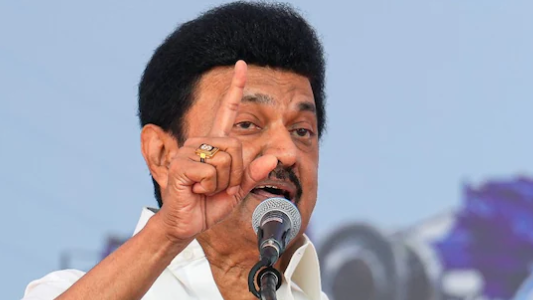

Madurai/Trichy, July 9, 2025 — Tamil Nadu Chief Minister M.K. Stalin delivered a pointed message to college students on Wednesday, urging them to reject divisive ideologies inspired by Nathuram Godse and instead embrace the inclusive legacies of Mahatma Gandhi, B.R. Ambedkar, and E.V. Ramasamy ‘Periyar’. Speaking at Jamal Mohamed College in Trichy, he emphasized the importance of secular and democratic values, while inviting the youth to join the state’s “Oraniyil Tamil Nadu” campaign—a 45-day drive across all 234 assembly constituencies.
“Several paths lie before us—the paths of Gandhi, Ambedkar and Periyar. But never that of the Godse group,” Stalin asserted, cautioning students against ideologies that threaten unity and social harmony. He stressed that Godse’s extremist worldview stood in stark contrast to the values of justice and equality that Tamil Nadu's socio-political culture embodies.
The “Oraniyil Tamil Nadu” campaign, launched by the ruling DMK on July 1 and statewide from July 3, aims to mobilize citizens by highlighting the Centre’s alleged neglect of Tamil Nadu. The campaign spans from Paalaverkadu to Kanyakumari and Anaikattai to Nagapattinam, with an outreach strategy targeting two crore households via door-to-door visits, public meetings, rallies, and a membership drive.
During his address, Stalin reiterated the transformative impact of DMK’s welfare initiatives, such as the Naan Mudhalvan skill-upgrade program and the monthly ₹1,000 stipend for girl students. He reiterated that “our Dravidian model”—built on social justice and scientific temper—ensured education and opportunity for all ****.
“If Tamil Nadu stands united, no one can defeat us,” Stalin affirmed, appealing to students to view participation in social campaigns as civic duty rather than partisan politics. “I'm not here to speak politics, but to let students know about politics,” he added, underscoring the broader relevance of academic freedom and political awareness
The campaign also seeks to question the Centre’s stance on state cultural heritage, including its treatment of Keeladi archaeological findings, and alleges withholding of central funds from Tamil Nadu's education projects .
Stalin described the campaign as a “first-of-its-kind” initiative in which state government efforts would be launched in schools and colleges, urging students to take a proactive role in reviving democratic and inclusive values.
As the Oraniyil campaign unfolds, student involvement will be a critical measure of its resonance among younger populations. Analysts suggest that Stalin’s outreach to educational institutions marks a new phase of grassroots political mobilization focused on identity, equity, and state autonomy.